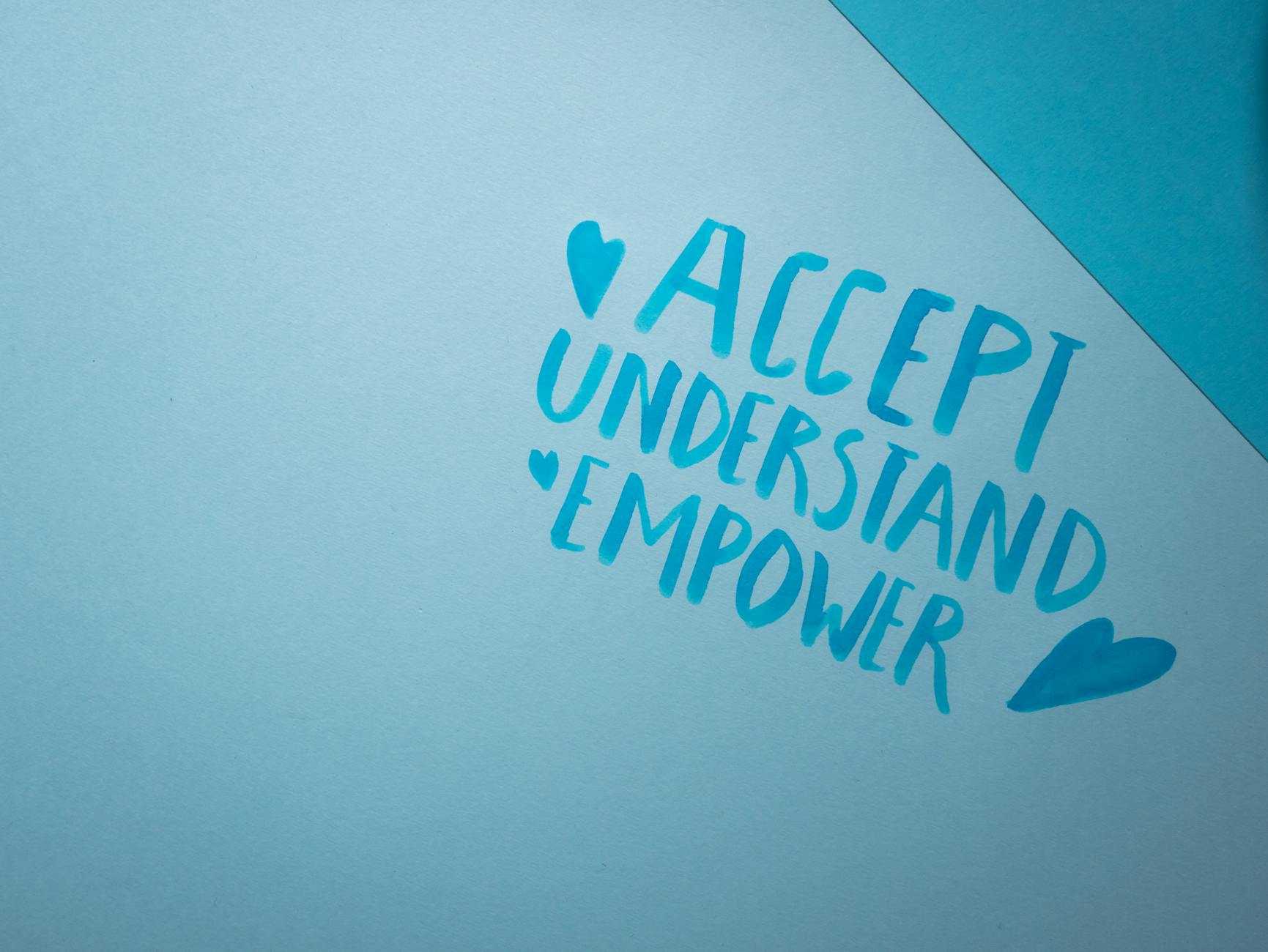We all struggle with insecurity at some point in our lives. Whether it’s about how we look, our abilities, or what others think of us, these feelings can hold us back. However, you can overcome insecurity with a little effort, and be who you want to be. In this guide, we’ll explore practical strategies to help you face self-doubt head-on and start feeling confident in who you are.
1. Acknowledge Your Insecurities
Denial is not helpful when it comes to self-improvement, so it’s important to admit that you struggle with insecurity. Recognizing that you feel insecure about certain parts of your life is the first step to overcoming them. If you ignore these feelings, they only become stronger and make it harder for you to change.
Think about what triggers your insecurity. Spend time reflecting and try to find the root cause, whether it’s something from your past or pressure from society. Be honest with yourself, even if it’s tough, because this will help you figure out what you need to work on in order to overcome insecurity.

Everyone experiences self-doubt, so don’t be ashamed or held back just because you feel insecure about something. By facing your feelings, you’re already on the path to change and you can overcome insecurity much faster by doing this. Many people don’t have the courage to admit their insecurities, and they don’t make an effort to fix them. By confronting this challenge, you’re showing real courage, so be proud of yourself!
A fantastic example of someone who worked hard to overcome insecurity is Peter Dinklage (Game of Thrones, Avengers:Infinity War). He had to overcome self-doubts about himself and his height, but that didn’t stop him from becoming a successful film star.
2. Practice Self-Compassion
Treat yourself with compassion when you’re working to be a better version of yourself and trying to overcome insecurity. Be kind to yourself, and imagine how you’d comfort a friend in the same situation. Apply that love and care to yourself, instead of putting yourself down and thinking of yourself as a loser.
No one is perfect, and that’s okay, because perfectionism is a trap and it originates from fear of failure. When you’re afraid of failure, you avoid new opportunities and give up too early. But don’t worry, this article talks about some simple strategies you can follow to learn and grow from failure. Moreover, accepting your imperfections makes room for growth, and is necessary for you to continue growing as a person.

It’s also normal to make mistakes, because there can be no progress without it. Learn to forgive yourself for making mistakes, because they help us become better by guiding us to our goals. When you forgive yourself, you also build resilience to learn from mistakes and move forward. This simple step can shift your perspective to look at the lessons to be learnt, instead of feeling bad about not being perfect.
3. Challenge Negative Thoughts
Pay attention when negative thoughts come up and how they make you feel. Keep a journal and write down your thoughts and feelings so you can spot patterns in how you think. Is there a certain situation or person that makes you feel insecure? Or do you always think negatively about yourself? Are there any steps you can take to change it? Maybe your insecurity is tied to a specific task or job. Analyzing these patterns will help you figure out the exact area of your life that you need to work on to overcome insecurity.

Remember to change the way you think about your insecurities and turn negative thoughts into positive ones. For example, instead of thinking, “I’m not good enough,” try saying, “I’m doing my best, and that’s enough.” This shift in thinking is helpful because it forces you to move from what you feel in your mind to what is true in real life. You can also use positive affirmations each morning to set a positive tone for the day. Here’s a list of positive affirmations to get your started.
Practicing mindfulness meditation regularly can also help you identify harmful thoughts and take a step back from them. Being mindful helps you notice your thoughts without judging them, and once you become aware of your thinking patterns, you can manage them without letting them take control.
Here’s a short quiz for you to evaluate your levels of insecurity:-
How Insecure Are You?
Question 1:
How do you feel when you receive criticism?
A) I take it personally and dwell on it.
B) I see it as an opportunity to improve.
Question 2:
Do you often compare yourself to others?
A) Yes, I constantly compare myself and feel inadequate.
B) No, I focus on my own journey and goals.
Question 3:
When faced with a challenge, how do you respond?
A) I feel overwhelmed and doubt my abilities.
B) I try to tackle it head-on and seek solutions.
Question 4:
How often do you feel confident in your decisions?
A) Rarely; I second-guess myself a lot.
B) Often; I trust my judgment.
Scoring:
Mostly A’s:
You may struggle with insecurity. It’s important to recognize these feelings and work on building your self-esteem. Consider reflecting on the root causes of your insecurities and seeking support when needed.
Mostly B’s:
You have a healthy level of self-confidence! You focus on your own journey and are less affected by others. Keep nurturing this mindset to continue growing and overcoming challenges.
4. Set Realistic Expectations
Social media can make it seem like everyone else has a perfect life, but a lot of what you see is fake. People often share only the best parts of their lives, which can make you feel bad when you compare yourself to them. However, in reality, everyone has challenges behind the scenes.
Using social media platforms without feeling insecure is possible if you choose to follow accounts that make you feel good about yourself instead of those that make you compare your life to others. Look for content that matches your interests and values, which can help create a positive online space.
Additionally, set limits on how much time you spend on social media to avoid endless scrolling. You can use apps like SocialX that help track or limit your usage. Finally, take breaks when needed to focus on real-life activities and personal growth. By using social media mindfully, you can enjoy its benefits while feeling good about yourself.

Don’t forget to focus on your own journey and set goals that are meaningful to you, not based on what others are doing. Setting your own goals keeps you motivated and builds your self-esteem. On the other hand, if you set goals just to fit in or because of peer pressure, it can lead to disappointment and jealousy. This type of thinking can make it harder to overcome insecurity.
Trying to reach too many goals at once can be overwhelming. Make it easier by taking small steps in the right direction, and balance your goals with what is realistic for you. Break your goals into small, achievable steps to build confidence as you succeed. If you find it hard to set goals, we have a great article that can help you get started!
5. Build Stronger Relationships
Overcoming insecurity in relationships is important for building a healthy partnership. Insecurities can be a result of past experiences, low self-esteem, or unrealistic expectations, and can change how you think about love and trust. To fight these feelings, start by changing how you see yourself. Focus on your strengths and use positive self-talk to shift your mindset to a more helpful one. When you have doubts, don’t just accept them. Instead, take time to analyze them and challenge whether they are really true. Many of our doubts are based on fear rather than reality, and understanding this can help lessen their impact.

Good communication with your partner is key to dealing with insecurities. Share your feelings in an honest and open manner and talk about any triggers that make your insecurity worse. Being open helps your partner understand you better and strengthens your relationship. If you feel that your insecurities are hard to get rid of, think about getting help from a therapist. A professional counselor or therapist can help you uncover the root causes of your feelings and give you tools and strategies to build self-confidence and improve your relationship. Couples therapy can also help create a deeper emotional connection between you and your partner.
Most importantly, make time for self-care by doing activities that boost your self-esteem, like pursuing hobbies or spending time with supportive friends. You should also avoid comparing your relationship to others or focusing on past experiences because every relationship is different. These strategies will help you overcome insecurity and lead to a stronger and happier relationship.
6. Surround Yourself With Positive People
How you feel about yourself is influenced a lot by the people you spend time with. It’s really important to have friends who support you and make you feel good. When you’re around people who encourage you, it’s easier to feel confident, especially during tough times when you’re trying to overcome insecurity.

Pay attention to the energy of the people around you. Being with positive friends can lift your spirits, but it’s also crucial to avoid negative influences. This might include certain friends who bring you down or even things like social media that make you feel bad about yourself. Remember, it’s not selfish to put yourself first. Setting healthy boundaries is important, so don’t hesitate to say no to people or situations that make you feel worse.
Look for clubs or groups that match your interests and values. Joining a community of like-minded people can help you meet others who understand and support you. Being part of such a group can boost your confidence as you work on overcoming insecurity. This way, you’ll build a stronger self-esteem and feel more confident in yourself!
7. Embrace Vulnerability
Being vulnerable means showing your true self, and it can help you build deeper, more meaningful connections with others. When you’re open and honest, you allow yourself to be your most authentic self. This openness not only helps you connect with others but also encourages them to be genuine with you. Plus, it helps keep fake people away!

Moreover, it’s important to be honest about how you feel when you’re trying to overcome insecurity. You might think that showing your insecurities will make people judge you, but the opposite can happen. When you express your true feelings, it often leads to support and understanding from those around you. Many people appreciate the honesty and can offer the right guidance to help you overcome your insecurities.
It might sound surprising, but most people are too busy worrying about their own insecurities to judge yours. Everyone has something they feel insecure about, whether it’s their looks, abilities, or social skills. So, don’t be afraid of what others might think. Keep focusing on what you need to do to overcome your own insecurities.
8. Focus On What You Can Control
You can’t make everyone happy, and trying to get approval from others is often a waste of time. Instead, focus on what you believe in and what makes you feel good. If you depend on other people’s opinions to feel good about yourself, you’ll always feel like something is missing. When you seek validation from others, your relationships with them can become shallow and fake, almost like a business deal.

It’s important to take responsibility for how you respond to different situations because that’s something you can control. You might not be able to change what happens around you, but you can change how you react to it. Let go of the idea that you need to control everything that happens. Remember, the only things you can control are your own thoughts, choices, and decisions.
Build resilience so that you can learn how to bounce back when things don’t go your way. When you face a problem or a setback, remind yourself that these challenges are part of growing up, and are needed to overcome insecurity. They help you understand what isn’t working in your life, and you should use these experiences to adjust your plans and learn from them. Every time you face a challenge, see it as a chance to grow and move closer to your goals.
9. Build Self-Confidence
Celebrate your achievements, no matter how small, because reward can be a great motivator when you’re trying to overcome insecurity. Recognizing your successes helps build confidence and keeps you moving forward as you work on overcoming insecurity. It doesn’t even have to be something big. Even treating yourself to your favorite snack or watching a movie when you reach a personal goal can make a huge difference.

Learning new skills is another great way to boost your self-esteem. When you master something new, it gives you a sense of accomplishment and makes you feel more capable. By improving yourself and learning new things, you develop a growth mindset, which can stop you from falling back into feelings of insecurity or not feeling good enough.
Being confident means accepting compliments gracefully, but many of us don’t know how to respond when someone gives us a compliment. We might be too focused on our own doubts, thinking we don’t deserve the praise. Instead of brushing off compliments, try to accept them with a smile. Let yourself feel proud that someone noticed something good about you. Write these compliments down in a gratitude journal, and whenever you’re feeling insecure, look back at them to remind yourself of your strengths.
10. Practice Gratitude
Regularly writing down things you’re grateful for shifts your focus from what’s lacking in your life to what’s abundant. Keep a gratitude journal and review it regularly so that you’re able to look back at your progress and be proud of how far you’ve come in your journey to overcome insecurity. Don’t forget to update it regularly so that you can shift your mindset and invite more abundance in your life.

Practicing gratitude is also helpful because success isn’t achieved in a straight line, and you’ll have your fair share of ups and downs. In moments of self-doubt, remind yourself of your strengths and past accomplishments. Focus on the positives, and keep working on your weaknesses to keep things in the right perspective. This will also serve as a source of motivation for you.
Personal growth takes time, so appreciate your journey and be grateful for the progress you’ve made. Keep building on your efforts and don’t let minor setbacks stop you from becoming the best version of yourself. It is one of the most fulfilling endeavors and your future self will thank you for it.
11. Seek Professional Help
Sometimes, it’s a good idea to talk to a counselor or therapist. They have the professional skills to help you deal with any deep-rooted insecurities. Therapy can make a big difference, especially if you’ve been struggling with insecurity for a long time and it’s affecting your everyday life.

You could also join a support group where you can share your experiences with people who have faced similar challenges. Being around others with the same goals can give you comfort, help you feel like you belong, and give you new ways to think about your situation.
Remember, asking for help to overcome insecurity is not a sign of weakness. It actually shows strength. Many people who feel insecure avoid asking for help because they’re scared of being judged. Don’t forget that everyone deals with insecurity in some way, so you’re not alone. However, that doesn’t mean you have to deal with it by yourself.
Final Thoughts
Overcoming insecurity isn’t an overnight process, but by taking small, consistent steps, you can transform your mindset. Remember, everyone struggles with self-doubt—it’s part of being human. The key is to not let it control you. By acknowledging your insecurities, practicing self-compassion, and surrounding yourself with positivity, you can build the confidence to live authentically and proudly.
What advice would you give to someone who wants to overcome insecurity?
